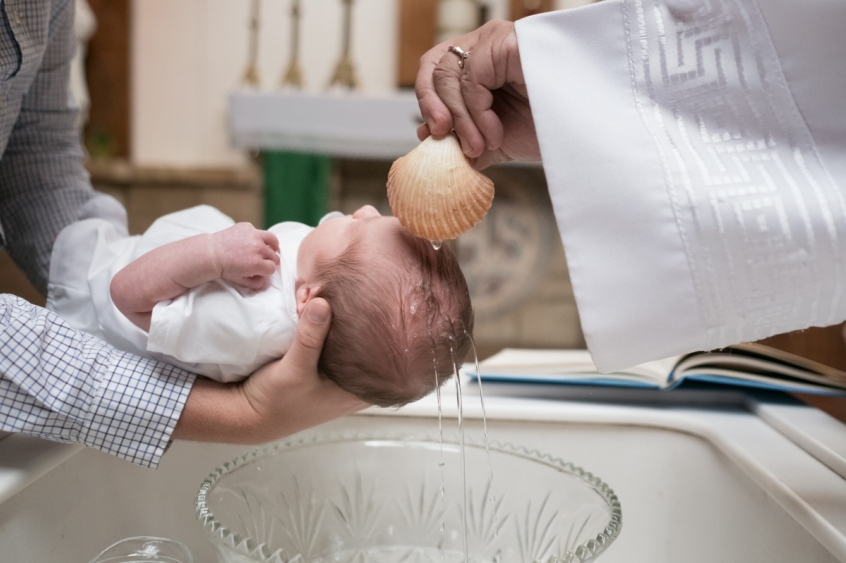
Nearly two years before thousands of Catholics learned earlier this month that their baptisms were invalidated because their priest said the wrong word during baptisms, hundreds of Catholics baptized at the St. Anastasia Roman Catholic Church in Michigan learned their baptisms were also deemed invalid.
The Rev. Andres Arango, the former priest of St. Gregory Catholic Church in Phoenix, Arizona, resigned after a 20-year career earlier this month after church officials concluded that he had been using the phrase "We baptize" instead of the Vatican approved "I baptize" for baptisms.
"Specifically, it was reported to me that Fr. Andres used the formula, 'WE baptize you in the name of the Father, and of the Son, and of the Holy Spirit.' The key phrase in question is the use of 'We baptize' in place of 'I baptize,'" Thomas J. Olmsted, the bishop of the Diocese of Phoenix said at the time. "The issue with using 'We' is that it is not the community that baptizes a person, rather, it is Christ, and Him alone, who presides at all of the sacraments, and so it is Christ Jesus who baptizes."
Seventeen months ago, the Archbishop of Detroit, the Rev. Allen H. Vigneron, revealed in a statement that the now-retired Deacon Mark Springer, who performed nearly 800 baptisms at St. Anastasia from 1986-99 had made a similar error which also led to the invalidation of the baptism of Fr. Matthew Hood, a young priest Springer had baptized with the "invalid formula."
"The deacon who first attempted to baptize Father Hood, Deacon Mark Springer, used this invalid formula while assigned at St. Anastasia Parish in Troy, during the period from 1986-1999," Vigneron said at the time. "The parish and Archdiocese of Detroit will make efforts to contact those whom the deacon attempted to baptize, so that they may receive valid sacraments. The Archdiocese has made the deacon's identity known in an attempt to alert people whom we may not have a way to contact."
Archdiocese of Detroit spokeswoman Holly Fournier told The Associated Pressthat only 200 of Springer's baptisms were identified as valid and 71 people came forward to redo the sacrament again including Fr. Hood.
The AP reported that within days of finding out that his baptism was invalid, Hood, 31, was properly baptized and quickly ordained to the priesthood in 2020. Some 30 couples whose wedding Hood officiated also had to redo their vows.
"I was expecting them to be angry, upset, confused," Hood told the news service. "Their reaction was 'Father Matt, we feel so bad for you."
The archdiocese is still waiting to hear from hundreds of others whose baptism and other sacraments are now considered invalid.
"We reached out directly, mailing letters to everyone impacted using the most recent records we had on each individual," Fournier told the AP. "We're eager to accompany anyone who comes forward."
In the Catholic Church, people are baptized once, as infants, and not rebaptized as adults. However, children, teenagers and adults who convert to Catholicism also receive baptism, often performed during Easter vigils (see examples here and here).
While admitting that even though in the Catholic tradition "God has bound Himself to the sacraments, but He is not bound by the sacraments," Vigneron insisted that having the rites properly administered is an important part of Catholic life.
"When properly administered, (sacraments) are visible rites and efficacious channels through which the sanctifying grace of God flows to those who receive them with the proper disposition," he said. "Sanctifying grace is necessary for a soul to spend eternity in heaven, and valid sacramental baptism guarantees that this grace has been placed in the soul."
"Sin is a loss of sanctifying grace, but all the sacraments work according to their purpose to give and fortify sanctifying grace in the soul. This grace is a treasure of treasures and we must do everything we can to protect the integrity of the sacraments through which we receive it," he explained. "It is the duty of the local Church to ensure that everyone entrusted into her care has the full benefit and certainty that come from the valid reception of the sacraments, which have been given to us to keep us as secure as possible on the path to heaven."













